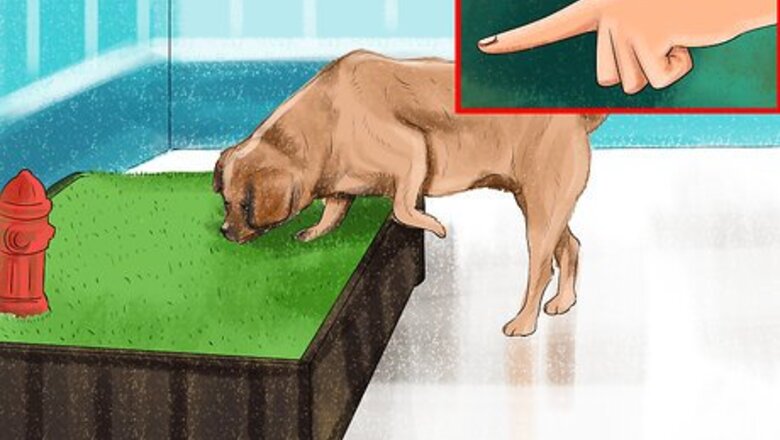
views
Recognizing Social Benefits

Realize that most senior dogs are trained. Puppies are adorable creatures that are easy to love, but housebreaking a puppy can be a frustrating and tedious process. A prime benefit of bringing a senior dog into your home is that, in most instances, the housebreaking has been done for you. However, you should still be prepared to spend at least some time training your senior dog if you decide to get one. Senior dogs are typically already potty trained. Many may also be able to perform “sit,” “down,” “come,” and other commands. Many senior dogs may also have good manners, and some may even be able to perform tricks. This is especially great for busy families who may not have time to train a puppy.

Understand that older dogs tend to be more tolerant. Older dogs have had to refine their social skills and learn to live around people. As such, they tend to be more patient and tolerant than younger dogs or puppies. This can be very helpful if you have kids at home. However, if a senior dog suffers from a painful ailment—like arthritis—they may not like to be grabbed or climbed on. Senior dogs with poor eyesight or hearing may be less tolerant, because these health issues may cause them to be surprised more often. As a result, they may be snappy.

Realize that older dogs tend to be adaptable. The old adage that you “can’t teach an old dog new tricks,” is actually very misleading. Older dogs tend to go with the flow more easily than younger dogs, and can easily find their place in your household. This can be great if you have additional dogs or other pets at home.
Considering Other Advantages

Appreciate that there won’t be any surprises. One of the benefits of adopting an older dog is that “what you see is what you get.” An older dog isn’t going to surprise you, the way a puppy might. You can easily get a sense of an senior dog’s temperament, which tends to be very stable.

Witness their full size. When you bring home a puppy, you are taking a gamble in terms of size, as you can never be 100% sure how big your dog will get. Senior dogs are finished growing, so you can witness their full size before you bring them home. This can be especially helpful if you have a small home or limited outdoor space.

Appreciate the advantages of a pet with a shorter lifespan. Although some people may not want to bring home a pet that will live less than 10 years, for other families, a pet with a slightly shorter lifespan may be ideal. If you’d rather not sign up for 15+ years of pet obligations, perhaps a senior dog is the right choice for you. If you'd rather not continue taking care of a dog after your kids have gone off to college, this could be the dog for you.
Managing Health Concerns

Understand that they have less stamina. The first major difference between a young a dog and an older dog is the amount of energy and stamina they have. Most senior dogs will not be able to play as intensely, or as long, as younger dogs of similar breeds. This can be a benefit for busy families, who don’t have the time to exercise a young dog. Dogs of any age still need physical and mental stimulation. Playing fetch, going for a short jog, or playing hide-and-seek with a treat can help keep your dog happy and healthy.

Understand that they will need more veterinary visits. Senior dogs, even those that are very healthy, need to be seen by the vet more often. Senior dogs should visit a vet at least twice a year. This visit should include blood work, urine analysis, and a full body examination. Additionally, senior dogs should be seen annually for a dental cleaning and exam. A basic veterinary visit can range from $45-200. Additional "geriatric" screenings (such as blood work and chemistry, urinalysis, and x-rays) can run around $100. Having your dog's teeth cleaned can cost anywhere from $300-500. If they need additional dental work, this will cost more.

Request a health report from a veterinarian. Most shelters and adoption centers will be able to provide you with a comprehensive health report for a dog you are interested in adopting. By reviewing this information, you will be able to decide if you can meet the animal’s needs. Many older dogs will have no significant health problems, some will have very manageable health problems, and some may have more serious health concerns.




















Comments
0 comment